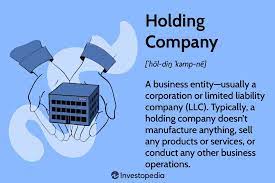The Importance of Real Estate Holdings
Real estate holdings play a significant role in the financial portfolios of individuals and businesses alike. Investing in real estate offers a range of benefits that make it a popular choice for wealth building and diversification.
One key advantage of real estate holdings is their potential for appreciation over time. Unlike other assets that may depreciate, well-chosen real estate properties have the potential to increase in value, providing investors with capital gains.
Real estate holdings also offer a reliable source of passive income through rental properties. By leasing out residential or commercial spaces, property owners can generate regular cash flow that can supplement their income or fund future investments.
Diversification is another important aspect of real estate holdings. Including real estate in an investment portfolio can help spread risk and reduce overall volatility. Real estate tends to have a low correlation with traditional financial assets, making it an effective hedge against market fluctuations.
Furthermore, real estate holdings provide tangible assets that offer intrinsic value. Land and buildings have inherent worth that can provide stability and security in uncertain economic times.
Whether you are an individual looking to grow your wealth or a business seeking to expand your investment portfolio, real estate holdings offer a range of advantages that make them a valuable asset class worth considering.
The Advantages of Placing Real Estate Assets in a Holding Company Structure
Understanding Real Estate Holding Assets: Definitions and Implications
4. Corporate Structures Unve
- Why would a holding company own a house?
- Why put real estate in a holding company?
- What is a real estate holding asset?
- What is an example of a holding company?
Why would a holding company own a house?
A holding company may choose to own a house for various strategic reasons, such as asset protection, tax benefits, or investment diversification. By holding real estate assets through a separate entity like a holding company, individuals can shield their personal assets from potential liabilities associated with the property. Additionally, owning a house through a holding company can offer tax advantages, including deductions for expenses related to the property and potential capital gains tax benefits. Furthermore, incorporating real estate holdings into a diversified investment portfolio can provide long-term growth opportunities and help spread risk across different asset classes.
Why put real estate in a holding company?
Putting real estate in a holding company offers several advantages that make it a popular strategy among investors. By creating a separate entity to hold real estate assets, individuals and businesses can protect their personal or core business assets from potential risks associated with property ownership. Additionally, holding real estate in a company structure can provide tax benefits, asset protection, and easier transferability of ownership. This approach also allows for more efficient management of multiple properties and simplifies estate planning by facilitating the transfer of assets to heirs or beneficiaries. Overall, using a holding company for real estate holdings can offer greater flexibility, protection, and strategic advantages for investors seeking to optimize their property investments.
What is a real estate holding asset?
A real estate holding asset refers to a property or piece of land that an individual or entity owns for investment purposes rather than for immediate use or resale. These assets are typically held long-term with the intention of generating income through rental payments or capital appreciation. Real estate holding assets can include residential properties, commercial buildings, undeveloped land, and other types of real estate. By holding onto these assets over time, investors can benefit from steady rental income, potential tax advantages, and the opportunity for long-term growth in value.
What is an example of a holding company?
A holding company is a type of firm that does not produce goods or services itself, but instead owns shares of other companies to form a corporate group. One common example of a holding company is Berkshire Hathaway, led by renowned investor Warren Buffett. Berkshire Hathaway holds significant stakes in various well-known companies such as Coca-Cola, Apple, and American Express. As a holding company, Berkshire Hathaway focuses on long-term investments and strategic acquisitions, leveraging its diversified portfolio to generate substantial returns for its shareholders.
Tags: appreciation, asset protection, benefits, capital gains, diversification, financial portfolios, importance, intrinsic value, investing, investment diversification, passive income, real estate holdings, rental properties, risk reduction, strategic reasons, tangible assets, tax benefits, volatility, wealth building
